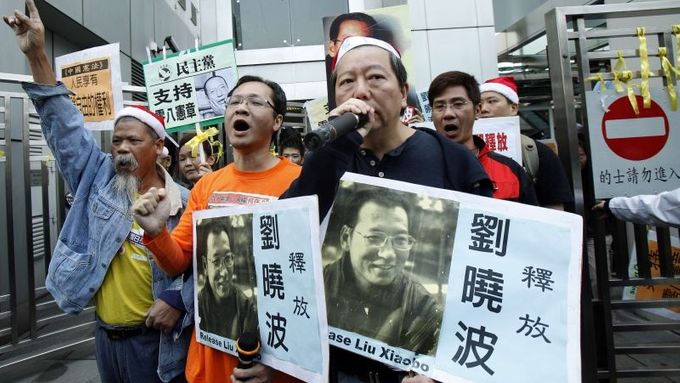Prague - Chinese civil rights movement Charter 08 and its head Liu Xiaobo should be awarded the Nobel Peace Prize. This is the suggestion of the „guardians" of the heritage of Charter 77, a civic rights movement active in communist Czechoslovakia in the late 70s and troughout the 80s, from which the Chinese group obviously drew inspiration.
Aktuálně.cz has a copy of Charter 77's latest declaration, signed by Rudolf Battěk, Jiří Gruntorád and Dana Němcová. „For the last two years, Charter 08 is using non-violent methods to fight for the same values promoted before by Czechoslovak civic initiative Charter 77," the document says.
Read more: One World Homo Homini award goes to Chinese dissident
The appeal is aimed at members of the Czech government and parliament, heads of Czech universities and Nobel Peace Prize laureates - in sum to all who can suggest candidates to the Norwegian Nobel Committee.
Presently, Chinese Charter 08 says it promotes civil rights, rule of law, minority rights and environment protection. It also wants the Chinese Federal Republic to be established.
Liu Xiaobo, the group's founder and co-author of its manifest, was arrested at the end of 2009 and sentenced for 11 years of confinement for „inciting anti-state efforts". According to the prosecution, the 53 years-old university professor is guilty of criticizing the ruling communist party.
Read more: Havel calls for release of Chinese dissident Liu
„Do as you promised"
Originally, Charter 77 was a reaction of some Czechoslovakian intellectuals to the state repression against a rock band called the Plastic People of the Universe that took place in 1976. The text of Charter 77 was prepared in December 1976, asking the state to grant its citizens their civic and human rights as it was obliged to do by the documents the state had signed (for example by the Helsinki Accords from 1975).
Among the authors and first signatories of Charter 77 were for example writer Ludvík Vaculík, liberal communist Zdeněk Mlynář and most notably dramatist Václav Havel who later became one of the symbols of the Velvet revolution from November 1989 that put an end to the communist rule. One month later, Havel became president of Czechoslovakia and, after its dissolution in 1992, the first president of the newly established Czech Republic.
